The Curious Case Of Fahadh Faasil's Onscreen Relationships With Women
Ranga in Aavesham is but the latest manifestation of a pattern of notably dispassionate relationships that characters essayed by Fahadh share with their female celluloid counterparts
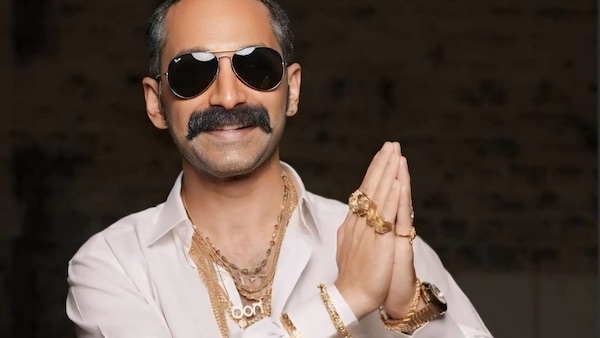
Last Updated: 06.30 PM, May 21, 2024
This column was originally published as part of our newsletter The Daily Show on May 21, 2024. Subscribe here. (We're awesome about not spamming your inbox!)
***
IN Jithu Madhavan's Aavesham, Ranga — played by Fahadh Faasil — is a wound-up spring of maniacal energy, dividing his time between brawls and bars. And yet, the character’s relationship with the women who populate his world is most curious. (Designer Miriam Mohan George has a spot-on caricature of Ranga, which lists “mommy issues” and “can’t talk to women” among his attributes. The other descriptors include “throws the best parties”, “alcoholic”, “just wants friends outside of work” and “looks like a cinnamon roll but can kill you”.) Ranga’s awkwardness with women manifests in various scenes; he shares a fraternal camaraderie with sex workers; and the only time he displays any vulnerability is during a phone call with Aju’s mother.
This curiously dispassionate equation with women has been a feature of the characters Fahadh has portrayed on screen, over the past few years. It’s quite the paradox for an actor who was known for the intense, intimate relationships he depicted on screen in the initial stages of his career. Interestingly it is a pattern Fahadh shares with Mammootty: For the last few decades, the superstar has been part of narratives in which women either had walk-on parts or shared strained/detached relationships with his characters, many of whom were loners or hermits. It may be too early to definitively state this, but Fahadh seems to have found a comfort zone like Mammootty’s.
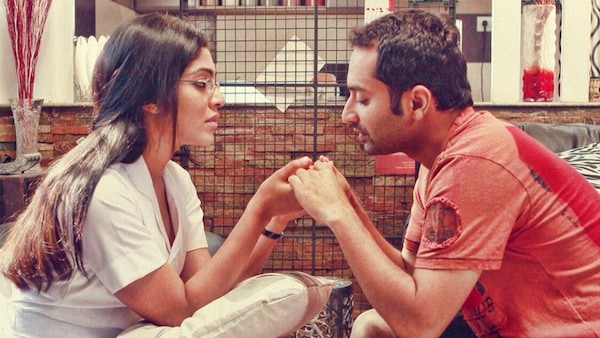
THE WONDER YEARS
In Sameer Thahir’s Chappa Kurishu (2011) he played a rich playboy who gets into trouble when a sex tape of his girlfriend gets leaked. The film made a lot of news for a kiss between Fahadh and Remya Nambeesan; since then, commercial Malayalam cinema started getting more comfortable about depicting intimacy on screen. Fahadh was in the vanguard of the new breed of actors ushering in the change in Malayalam cinema.
In Aashiq Abu’s 22 Female Kottayam (2012; stream it on Sun NXT), Cyril was a double-crosser who pimps his live-in girlfriend (Rima Kallingal) to his boss (Pratap Pothen). In Lal Jose’s Diamond Necklace (2012), he is a careless spendthrift who cannot be truthful toward any woman he dates. In Shalini Usha’s Akam (2013), when an accident disfigures his face, Srini isn’t distressed as much by the betrayal of his lover, as he is by his scarred face. It turns him into a bitter, cold man who suspects his beautiful bride of being a witch.
In hindsight, the only intense love story Fahadh has been part of, is Rajeev Ravi’s Annayum Rasoolum (2013; watch it on manoramaMAX). Despite the sticky representation of stalking that precedes their romance, local Romeo Rasool’s blind devotion for Anna (Andrea Jeremiah) is strangely heartwarming. Right from the moment he first lays eyes on her, Rasool seems to be in a trance, tongue-tied yet relentless in his pursuit. Their relationship is mostly quiet, communicated through the eyes and silences.
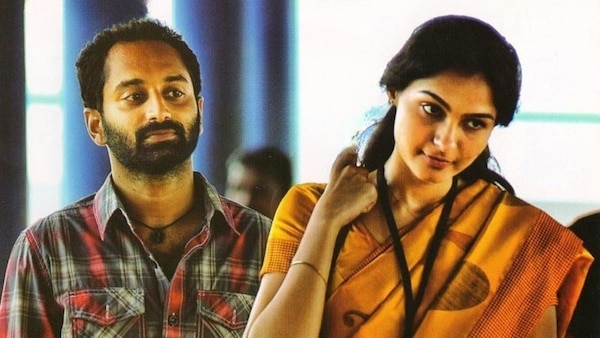
In Lijo Jose Pellisery’s Amen (2013), he is battling low self-esteem. It is worsened when he knows that Shoshamma’s (Swathi Reddy) family disapproves of him. Therefore it is Shoshamma who proactively takes forward their relationship, openly braving family opposition. It’s very similar to Hari’s fidgety relationship with Narayani in Anil Radhakrishna Menon’s North 24 Kaatham (2013). Hari suffers from OCD, is socially awkward, and isn’t quite prepared for a Narayani (Reddy once again) who is absolutely in charge of her life. She inadvertently pulls him towards her, as he tries to make sense of his conflicting relationship with humans in general.
IDEAL LOVER? NOT QUITE
Meanwhile, Ajmal in Anwar Rasheed’s Aami (from 2013 anthology 5 Sundarikal) lives a dual life. On the one hand, he shares an endearing bond with his wife (Asmita Sood), but on the other, engages in casual sex with an ex-girlfriend (Honey Rose). As for Michael, a talented painter in Shyamaprasad’s Artist (2013), he cannot see a world beyond his colourful canvas, obsessing over form and colours. His relationship with Gayathri (Ann Augustine) is perfunctory, despite their cohabitation after falling in love. For him, Gayathri is just a tool to enable his dreams and routine. When he loses his eyesight in an accident, Michael’s self-obsession becomes far too evident as he mercilessly pushes her around to keep his passion alive.
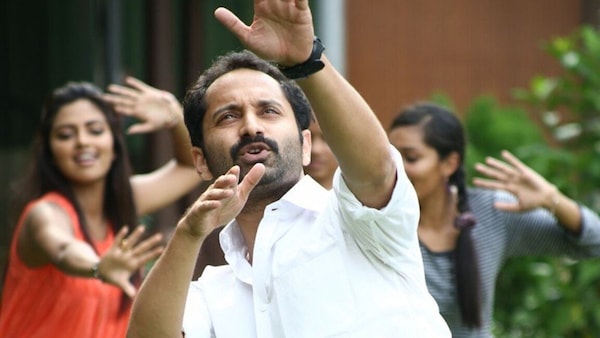
In Sathyan Anthikad’s Oru Indian Pranayakadha (2013), Ayamanam Sidharthan is a local youth wing leader who has set his eyes on bigger things. Even if that includes neglecting his devoted girlfriend (in fact even that relationship is purely materialistic). So when he meets the Canadian-born Irene (Amala Paul), the sparks don’t fly. He agrees to help when she offers money, and the progression of their relationship is very businesslike. It thaws when they decide to search for her biological parents. You may not feel the undercurrents, but it’s a very rational, empathetic union.
When Das comes to see Divya (Nazriya) in Anjali Menon’s Bangalore Days (2014), he is still grieving his deceased lover (Nithya Menen). He never mentions the severity of his trauma to Divya which makes her agree to the alliance. Post-marriage, it becomes very clear that he has shut her out; Das treats Divya with a detachment that leaves her with no other option than to walk out. Here, Das is a man bogged down by guilt and it is Divya who eventually eases his journey towards redemption. With Das, one gets the sense that he is someone capable of deep, unfathomable love and that he will find it all over again with Divya.
A SOFTER TURN
For Aloshy in Amal Neerad’s Iyobinte Pusthakam (2014), his childhood mate Martha (Isha Sharvani) never left his heart. Even when he has to fight bigger, ugly battles within his own family, Aloshy never lets her out of his sight. Not surprisingly she remains the only constant in his dysfunctional life. Again, similar to Das, Aloshy prefers to bottle up his pain, and you know he has an unwavering heart with the capacity for profound love.
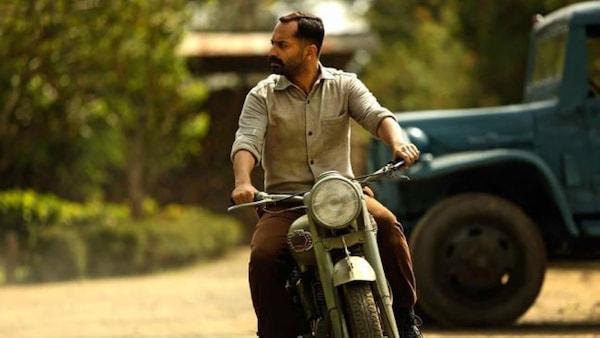
Fahadh played Mahesh in Dileesh Pothan’s Maheshinte Prathikaram (2016; stream here) as a softie — a man who wears his heart on his sleeve. With Sowmya (Anushree Nair), he never flinched from showing the world how madly in love he was. When she calls off their affair, Mahesh is devastated and unashamedly cries his heart out. You also know that he would require a spirited, proactive Jimsi (Aparna Balamurali) to wean him off his emotional exile as well as to reaffirm his faith in love. When that happens, though restrained, Mahesh’s unravelling is a lovely sight.
In Amal Neerad’s Varathan (2018), Fahadh's Aby is modelled as a metrosexual. There is companionship and respect between Abin and Priya (Aishwarya Lekshmi); they are equals. However, we do get some hints that Priya’s desires aren't being met. For instance, the time when Priya tells Abin she was sexually assaulted and he calmly tries to talk her out of seeking vengeance. It is only after Priya angrily chides him — “My dad would have protected me” — that Abin executes an intelligently staged retaliation.
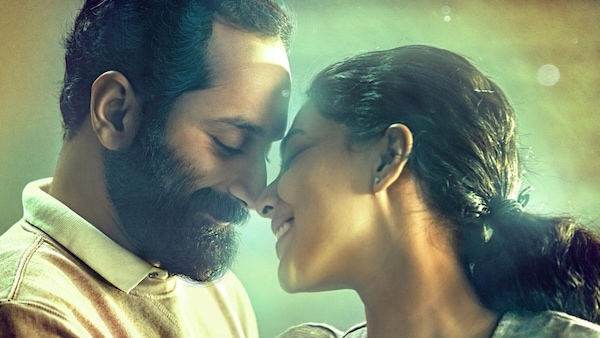
GREY MATTERS
The Fahadh character with the dodgiest relationship with women has to be Shammi in Madhu C Narayanan’s Kumbalangi Nights (2019). To his new bride Simmi (Grace Antony) and her mom, Shammi is a squeaky-clean family man, who has anointed himself as the patriarch of the family. He is also a misogynist, classist, has weird habits, and displays traits that are confusing and eerie. What’s never discussed in detail is his relationship with Simmi, a dutiful wife. Are they ever intimate, and is it consensual? Is he lording it over the women just to cover up his inadequacies? You get the sense that Simmi never really harboured any sentiment, beyond fear and duty, for him. (In sharp contrast, Ranga is just awkward. He poses no threat to women as such.)
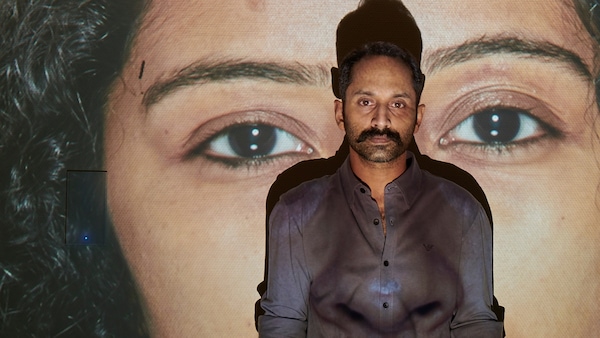
In Anwar Rasheed’s Trance (2020), since Joshua Peter has scant touch with reality and views the world through a hazy, psychedelic lens, he thinks Esther (Nazriya) is also a figment of his imagination, and their relationship isn’t explored beyond the surface. On the other hand, Fahadh’s most clinical relationship with a female character on celluloid has to be with his co-worker Sanjana in Mahesh Narayanan’s CU Soon (2020). He is an emotionally abusive partner who refuses to own up to his toxicity. In Mahesh Narayanan’s Mallik (2021), the protagonist's relationship with the high-strung Rosie (Nimisha Sajayan) is, in a sense, stripped of romance. Despite the couple looking out for each other, one hardly felt the intensity of an intimate bond there. The same sentiment is evoked in the equation between Avinash and Diya (Aparan Balamurali) in Dhoomam (2023) — it's practical, friendly, and functional.
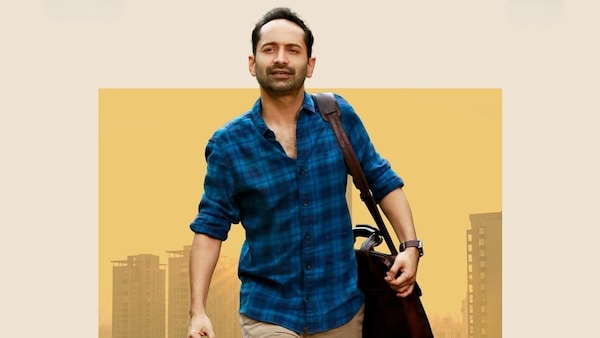
Pachu (from Akhil Sathyan’s Pachuvum Adbudha Vilakkum; 2023), Sidharthan (Oru Indian Pranayakadha), and Prakasan (Njan Prakasan; stream on manoramaMAX) aren’t exactly confident when it comes to hitting it off with women. And, among all the women who've been paired with Fahadh's characters, Hamsadhwani (Anjana Jayaprakash) in Pachuvum Adbudha Vilakkum is the ace. She is blunt, and pragmatic, and approaches Pachu in a way that would make other men run a mile from her. If Pachu’s curiosity is stoked by her efficiency and independence, she warms up to his plain-speaking. There are no loud, romantic placards to usher in their closeness; instead, we have deep, fulfilling conversations between two flawed individuals who are trying to find themselves.
Fahadh recently mentioned in an interview that he wants to try something along the lines of Mani Ratnam’s Mouna Ragam. Now that's an avatar we'd love to see!
